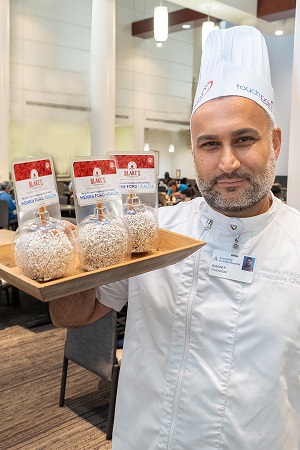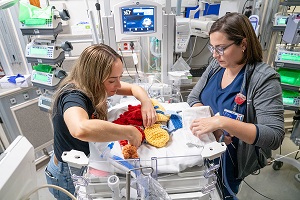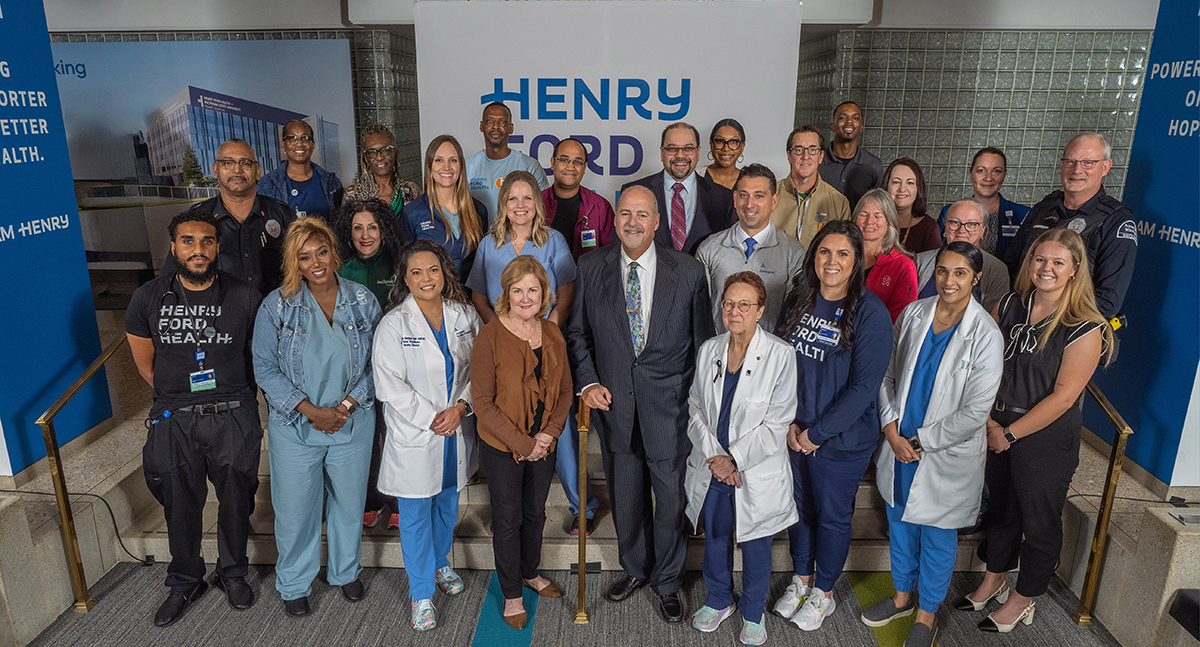Henry Ford Health System Serving Antibiotic Free Poultry in Push to Curb Antibiotic Resistance
Henry Ford Health System is taking on antibiotic resistance - AKA superbugs that claim roughly 23,000 lives and sicken 2 million people each year - by incorporating “No Antibiotics Ever” poultry into food services for patients, employees and guests.
The new poultry is being phased in at Henry Ford’s five hospitals and cafeterias in coming weeks. Earlier this month, patients and employees at Henry Ford Wyandotte Hospital and employees at One Ford Place in Detroit were the first to be served antibiotic-free chicken.
More than 100,000 patients were admitted to Henry Ford hospitals in 2015, and Henry Ford employs 24,600 people, feeding many of them in its cafeterias each day. Thousands of visitors and guests also eat Henry Ford prepared meals every year.
“This has the potential to bring health benefits not only to the many individuals we feed daily, all year long, but it is, we hope, a big step in lessening the greater public health threat that comes from the overuse of antibiotics in food animals,” says John Miller, director of Culinary Wellness for Henry Ford.
The poultry is provided by Perdue Harvestland and is labeled NAE – No Antibiotics Ever – the strictest classification of antibiotic-free poultry. It means chicken and turkeys raised by NAE standards were never given antibiotics, even as eggs.
Demand for antibiotic-free poultry, especially among institutional food providers such as hospitals and schools, is on the rise as a growing body of research documents the link between antibiotic resistance in humans and the use of antibiotics to raise food animals. Overuse and overexposure to antibiotics in animals and humans leads to those antibiotics becoming ineffective, even with common infections.
Health Care Without Harm, a nonprofit advocate for patients, says government figures show that 80 percent of antibiotics sold in the U.S. are used in industrial animal agriculture, not to treat infection or illness, but to promote growth by adding antibiotics to the diets of otherwise healthy food animals. The drugs are also given to combat illness and stunted growth that can come with the animals’ typically crowded and unsanitary surroundings. About 70 percent of the antibiotics used on animals are also used to treat human infections.
The World Health Organization, American Medical Association and 300 other organizations are advocating for an end to the non-therapeutic use of medically-important antibiotics as feed additives.
“Serving antibiotic-free poultry supports Henry Ford’s mission to implement practices that result in health benefits to patients and employees,” Miller says.
Antibiotic resistance costs the U.S. health care system an estimated $20 billion in excess direct health care costs every year, according to the U.S. Centers for Disease Control. Additional costs to business include the loss of productivity up to $35 billion a year or $96 million every day, according to the CDC.
Henry Ford’s decision to join other hospitals around the country in demanding antibiotic-free foods from suppliers, a challenge for years due to a lack of supply and logistical constraints, “is really an ethical duty to consider the greater good and take whatever steps necessary to protect this well-documented public health concern,” Miller says.
The move is the latest effort in a 2003 strategic plan for Henry Ford to improve and enhance its food service. Changes have included eliminating deep fryers, reducing fat and sodium in foods and increasing fruit and vegetable offerings. In 2013, Henry Ford signed the Partnership for a Healthier America Hospital Healthy Food commitment.
“From the beginning we knew this was going to be a journey that would evolve over a number of years,” Miller says. “We believe we’re at a point in the journey where it is clear what we’re doing will have a positive effect.”
MEDIA CONTACT: Kim North Shine, 313-549-4995
.svg?iar=0&hash=F6049510E33E4E6D8196C26CCC0A64A4)

/hfh-logo-main--white.svg?iar=0&hash=ED491CBFADFB7670FAE94559C98D7798)









